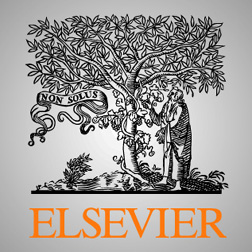دانلود ترجمه مقاله کاربرد کارت امتیاز متوازن در مدیریت ارتباط مشتری CRM – مجله IEEE
| عنوان فارسی مقاله: | تحلیل مدیریت ارتباط مشتری با استفاده از کارت امتیاز متوازن |
| عنوان انگلیسی مقاله: | Survey analyze customer relationship management using balanced scorecard |
| دانلود مقاله انگلیسی: | برای دانلود رایگان مقاله انگلیسی با فرمت pdf اینجا کلیک نمائید |
| سال انتشار | ۲۰۱۳ |
| تعداد صفحات مقاله انگلیسی | ۱۶ صفحه |
| تعداد صفحات ترجمه مقاله | ۱۸ صفحه |
| مجله | ژورنال بازاریابی تعاملی |
| دانشگاه | دانشگاه کلمبیا، ایالات متحده |
| کلمات کلیدی | مدیریت ارتباط با مشتری، کارت امتیاز متوازن، مدل ارزیابی مشتری محور |
| نشریه | IEEE |
فهرست مطالب:
چکیده
۱ مقدمه
۲ مدیریت ارتباط با مشتری
۳ اثربخشی و ارزیابی CRM
۴ مدلی برای ارزیابی اثربخشی CRM
۵ متریک های اثربخشی CRM
۱ ۵ دانش مشتری
۲ ۵ تعامل با مشتری
۳ ۵ ارزش مشتری
۴ ۵ رضایتمندی مشتری
۶ مطالعه موردی
۷ نتیجه گیری
بخشی از ترجمه:
مقدمه
تحول موسسات به مشتری محوری، و در عین حال توسعه درآمد و سود، یکی از داغ ترین استراتژیها در تجارت امروز به شمار می رود. این استراتژی معروف به مدیریت ارتباط با مشتری (CRM) می باشد. به منظور تحقق موفقیت CRM، تجارت و مدیران IT باید فرایندها و تکنولوژیهای CRM را اجرا و رفتار کارمندی را تقویت نمایند که از تعاملات موثرتر و هماهنگ مشتری در کل کانال های مشتری حمایت به عمل می آورد.
ماهیت CRM ، تغییر سازمان ها از مشتری محوری به فلسفه مشتری محوری می باشد. یکی از مهمترین فرایندهای CRM ، استخراج اطلاعات معتبر، قبلاً نامعلوم و جامع از پایگاه داده بزرگ و استفاده از آن به منظور سودآوری می باشد. CRM تکنولوژیها و برنامه های علم- تصمیم زیادی مثل داده کاوی و انبارداری داده ها را برای اجرای موثر آرایش می دهد. در جریان تعقیب استراتژیهای CRM توسط موسسات، آنها از این مسئله آگاه می شوند که هزینه ها و منافع راهکارهای CRM قابل توجه بوده و به همین خاطر تلاش می کنند تاثیرات مالی و فاکتورها و عوامل اقتصادی تاثیرگذار بر موفقیت را کنترل نمایند. برای اینکه موسسات به ROI (بازده سرمایه گذاری) از CRM دست یابند، سرمایه گذاریها در حوزه های کاربردی و تکنولوژیهای CRM باید بر منافع تجاری مشهود و نامشهود موسسه تاثیرگذار باشند. اثربخشی CRM را می توان در قالب سطح رضایتمندی حاصل شده توسط فعالیتهای CRM اندازه گیری نمود. از آنجایی که CRM به عنوان یک استراتژی تجاری اساسی برای تجارت الکترونیکی ظهور کرده است، در نتیجه ارزیابی اثربخشی اش از اهمیت بسزایی برخوردار می باشد. اما، برای ارزیابی اثربخشی CRM، تحقیقات کمی انجام شده است.
در دنیای CRM، بر توسعه معیارهای مشتری محور تاکید زیادی شده است و ایده بهتری در مورد نحوه کارکرد سیاست ها و برنامه های CRM در اختیار مدیران قرار می دهد.
بخشی از مقاله انگلیسی:
Introduction
Transforming enterprises to become customer-centric while still expanding revenue and profit is one of thehottest strategies in business today. This strategy is known as customer relationship management (CRM). Torealize CRM success, business and IT executives should implement CRM processes and technologies and foster employee behavior that supports coordinated and more effective customer interactions throughout all customer channels. The essence of CRM is to change organizations from a products-centric to customer-centric philosophy. One of the most important processes of CRM is, therefore, extracting valid, previously unknown, and comprehensible information from a large database and using it for profit. CRM deploys many technologies and decision-science applications like data mining and data warehousing to perform effectively. As enterprises pursue CRM strategies, they become aware that the costs and benefits of CRM initiatives are significant, and they strive to grasp the financial impacts and economic factors that contribute to their success. For enterprises to achieve ROI (return on investment) from CRM, investments in the application domains and technologies of CRM should contribute tangible business benefits to the enterprise, as well as intangible benefits. The effectiveness of CRM can be measured as a satisfaction level achieved by CRM activities. As CRM has emerged as a major business strategy for e-commerce, evaluating its effectiveness is very important. However, little research has been conducted to evaluate CRM effectiveness. In the CRM world, increased emphasis is being placed on developing measures that are customer-centric and give managers a better idea of how their CRM policies and programs are working (Winer, 2001). In this paper, we develop a model for evaluating CRM effectiveness using the balanced scorecard (BSC). BSC is intended to link short term operational control to the long-term vision and strategy of the business. In this way, a company focuses on critical key factors in meaningful target areas. By modifying the four perspectives of BSC suggested by Kaplan and Norton (1992), we can use BSC as a tool for assessing the effectiveness of various application domains (Fairchild, 2008; Grembergen & Amelinckx, 2011; Martinsons, Davison & Tse, 2006). BSC overcomes the drawbacks of financial-measure-oriented performance assessment through harmonizing both financial measures and nonfinancial measures and giving managers a balanced view of various perspectives. In evaluating the effectiveness of CRM activities, nonfinancial outcomes such as customer satisfaction, channel management, and customer understanding are as important as financial ones such as increased profit, net sales, and reduced cost. BSC, therefore, was chosen as a well-coordinated and harmonized evaluation tool for CRM effectiveness.This paper is organized as follows: First, this paper presents the definition and potential benefits of CRM in Section 2. Section 3 covers the existing CRM evaluation models, their drawbacks, and the advantages of BSC as a CRM evaluation tool. A CRM evaluation model and a CRM evaluation framework will be developed in Sections 4 and 5. The suggested model will be illustrated through a case study in Section 6. Finally, we conclude our study with emerging issues in the area of CRM evaluation.2. Customer relationship managementAs we enter the new millennium, CRM is changing many industries and influences many customers and businesses. CRM can be defined as managerial efforts to manage business interactions with customers by combining business processes and technologies that seek to understand a company‘s customers. Companies are becoming increasingly aware of the many potential benefits provided by CRM.
| عنوان فارسی مقاله: | تحلیل مدیریت ارتباط مشتری با استفاده از کارت امتیاز متوازن |
| عنوان انگلیسی مقاله: | Survey analyze customer relationship management using balanced scorecard |



